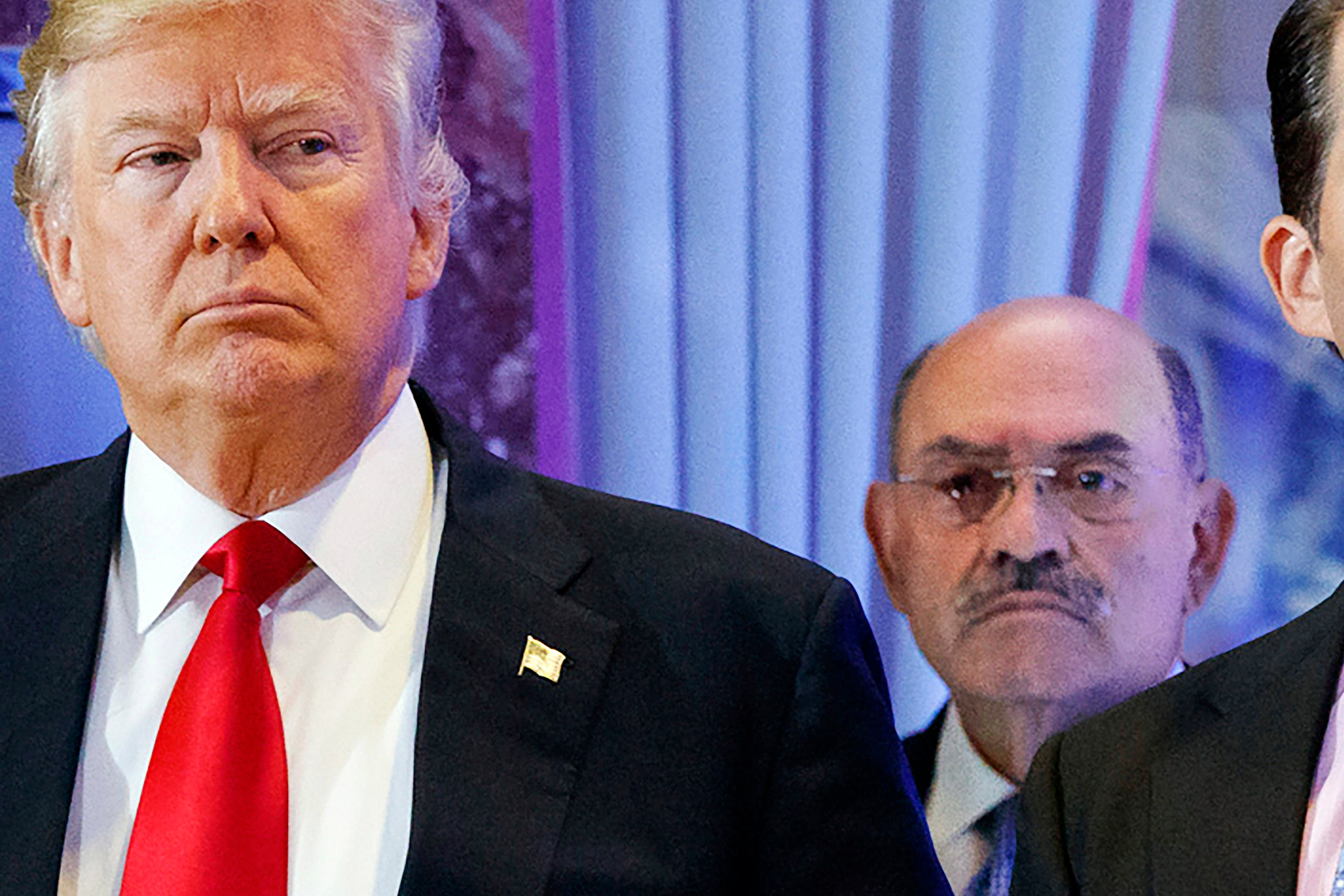Trump’s fraud trial judge demands answers about Weisselberg’s alleged courtroom lies
Arthur Engoron wants to know if Allen Weisselberg lied in his courtroom and how it could impact the case
Your support helps us to tell the story
From reproductive rights to climate change to Big Tech, The Independent is on the ground when the story is developing. Whether it's investigating the financials of Elon Musk's pro-Trump PAC or producing our latest documentary, 'The A Word', which shines a light on the American women fighting for reproductive rights, we know how important it is to parse out the facts from the messaging.
At such a critical moment in US history, we need reporters on the ground. Your donation allows us to keep sending journalists to speak to both sides of the story.
The Independent is trusted by Americans across the entire political spectrum. And unlike many other quality news outlets, we choose not to lock Americans out of our reporting and analysis with paywalls. We believe quality journalism should be available to everyone, paid for by those who can afford it.
Your support makes all the difference.The judge overseeing Donald Trump’s sprawling civil fraud case in New York wants answers following reports that one of the former president’s co-defendants is arranging a plea deal with Manhattan prosecutors on a perjury charge for lying in his courtroom.
In a message to attorneys on Monday, New York County Supreme Court Judge Arthur Engoron said he wants to know whether the Trump Organization’s former chief financial officer Allen Weisselberg is now “changing his tune” and admitting to lying under oath during the fraud trial.
As Judge Engoron prepares a final judgment in the case,The New York Times reported that the disgraced executive is negotiating a plea deal with the Manhattan district attorney’s office on a perjury charge.
Following the report, the judge sent an email to Manhattan prosecutors, attorneys for fraud trial defendants, and lawyers with the office of New York Attorney General Letitia James, who brought the initial lawsuit against Mr Trump, his adult sons and their chief associates.
“As the presiding magistrate, the trier of fact, and the judge of credibility, I of course want to know whether Mr Weisselberg is now changing his tune, and whether he is admitting he lied under oath in my courtroom at this trial,” Judge Engoron wrote.
“I do not want to ignore anything in a case of this magnitude.”
The judge suggested that if Weisselberg is found to have lied about one element in his testimony, he could treat the rest of his testimony as unreliable – a finding that could risk a judgment against Mr Trump and his co-defendants in a case that threatens to imperil his real estate empire and land the defendants with tens of millions of dollars in sanctions.
The judge asked for the parties to tell him “anything you know about this” and how they think he should address the issue, “including the timing of the final decision”.
He sent the message at 11.45am ET on Tuesday and asked for their replies by 5pm ET on Wednesday.

If he does reach an agreement with prosecutors, it will be Weisselberg’s second guilty plea in as many years for crimes stemming from a mountain of fraud and tax evasion allegations in civil and criminal courts in New York.
Last year, Mr Trump’s former top financial lieutenant spent 100 days in Rikers Island jail after pleading guilty to tax-related crimes in 2022. He was also enmeshed in a criminal tax fraud trial involving two Trump Organization subsidiaries, among the first Trump-connected entities to be convicted of crimes. A New York City jury found the Trump Corporation and the Trump Payroll Corporation guilty on more than a dozen charges and they were fined $1.6m.
Weisselberg also testified at the civil fraud trial, where lawyers for the state grilled him over what he knew about the creation of statements of financial condition, the documents at the heart of the case. Those documents included grossly inflated valuations of Mr Trump’s net worth and assets in an effort to obtain favourable financing terms for some of his brand-building properties, according to the attorney general’s lawsuit.
It remains unclear what statements Weisselberg would agree were false.
The attorney general is seeking to recover $370m in so-called “ill-gotten gains” that the defendants would not otherwise have obtained if they had included accurate assessments of his wealth in those documents, according to her office.
He also would be banned from the state’s real estate industry for life, under sanctions proposed by Ms James’s office.
The Independent has requested comment from an attorney for Weisselberg and a spokesperson for the Manhattan district attorney’s office.

Join our commenting forum
Join thought-provoking conversations, follow other Independent readers and see their replies
Comments